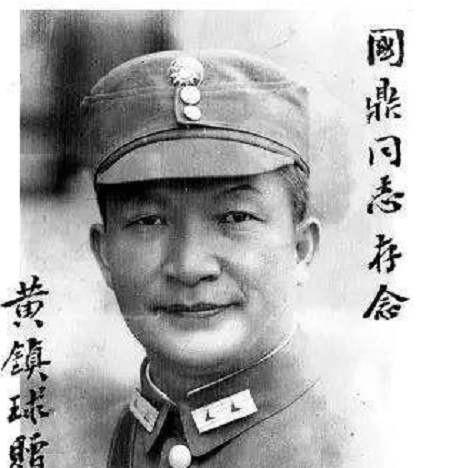In the late Qing Dynasty and the Republic of China period, the Cantonese department can be described as the birthplace of many famous generals, Sun Yat-sen's right-hand men Hu Hanmin and Chen Jiongming were Cantonese, and the Fourth Army, the main force of the Northern Expedition, was mostly Cantonese soldiers, so there has always been a saying that the success of the revolution relied on Cantonese generals.

There are indeed many famous generals in the Cantonese family, and the well-known names alone include Jiang Guangnai, Cai Yankai, Zhang Fakui, Li Hanling, Luo Zhuoying and so on. There is also a Cantonese general who is not well-known but has made great contributions named Huang Zhenqiu, who was the father of air defense of our army during the Republic of China period. Because he is both wise and courageous in battle, people call him "Tiger Boy".
Huang Zhenqiu graduated from the Baoding Military Academy and followed Sun Yat-sen in the revolution after graduation. After the reunification of the North and the South, he was sent abroad to study, and at that time his major was air defense, and the place of study was the military power of Germany.
In Germany, he clearly recognized the gap between China and Germany, so he studied harder, hoping that he could learn at the fastest speed to serve the motherland. After that, Huang Zhenqiu successively went to France, Italy, Austria, Belgium, Switzerland and other countries, gained a lot of insight, and also improved his air defense knowledge.
In 1933, Huang Zhenqiu returned from school, and for the differences between the national conditions of China and foreign countries, he wrote a plan on air defense, and put forward the idea of focusing on passive air defense, which was very suitable for the actual situation in China at that time, so that Chiang Kai-shek admired him very much, so he let him serve as the director of air defense in Nanjing, in charge of air defense work in Nanjing.
After the July 7 Incident, Chiang Kai-shek was afraid of the Japanese air raid on Nanjing, so he let Huang Zhenqiu deploy a large number of air defense facilities in Nanjing, Huang Zhenqiu was indeed talented, and when the Japanese army impressed the first air raid on Nanjing on August 15, Huang Zhenqiu immediately commanded the air defense forces to counterattack, and even set a record for one shell to shoot down three enemy aircraft.
After the Japanese captured Shanghai, Nanjing was the next target. At this time, Chiang Kai-shek had already thought of a way out, and he transported all the important materials and equipment to Chongqing in advance; at this time he specifically stressed that Huang Zhenqiu must also bring air defense facilities to Chongqing, which shows how important the air defense work is in Chiang Kai-shek's mind, and then Huang Zhenqiu is in charge of Chongqing's air defense work.
During the eight-year War of Resistance Against Japanese Aggression, Huang Zhenqiu worked hard for China's air defense cause, not only in charge of work, but also responsible for training the army and building a complete air defense intelligence network. It can be said that Huang Zhenqiu created a precedent for China's air defense cause, so he is also known as the "father of air defense", in order to commend Huang Zhenqiu's merits, Chiang Kai-shek awarded him the rank of general of the first class and the Order of the Blue Sky and White Sun.